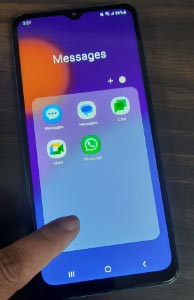Table of Contents
- Text Messaging Software
- Bulk SMS
- Bulk SMS Software
- » SMS Marketing
Benefits of SMS Marketing:
-
⭐ High Open Rates:
SMS messages have a high open rate of around 98%, which means that most of the recipients will read the message immediately. This makes SMS marketing a highly effective way to deliver time-sensitive messages and promotions.

-
🎯 Targeted Marketing:
SMS marketing enables businesses to target specific demographics, locations, or interests. This allows businesses to create highly personalized and relevant messages that resonate with their target audience.
-
💰 Cost-Effective:
SMS marketing is a cost-effective way to reach a large audience. It does not require expensive equipment or infrastructure, and the cost of sending a message is relatively low.
-
✅ Easy to Use:
SMS marketing is easy to use and can be set up quickly. Businesses can use SMS marketing software to create and send messages, and to track responses and engagement.
-
👥 High Engagement:
SMS marketing can drive high levels of customer engagement, as it allows businesses to send personalized messages that are highly relevant to the recipient.
Best Practices for SMS Marketing:

-
Obtain Consent:
It is important to obtain consent from the recipients before sending them any SMS messages. This can be done by asking them to opt-in to receive messages through a website, social media platform, or in-store sign-up.
-
Keep Messages Short:
SMS messages have a limit of 160 characters, so it is important to keep the message short and to the point. The message should include a call-to-action, such as visiting a website or making a purchase.
-
Personalize Messages:
Personalizing the message with the recipient's name, location, or interests can increase engagement and improve the relevance of the message.
-
Time Messages Appropriately:
Messages should be sent at an appropriate time, such as during business hours, to avoid disturbing the recipient's personal time.
-
Provide Value:
The message should provide value to the recipient, such as an exclusive offer, discount, or promotion. This will encourage the recipient to engage with the message and take action.